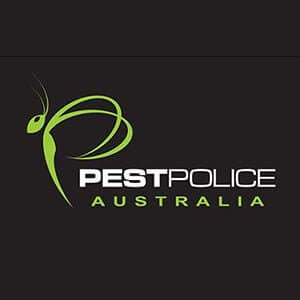Majority of individuals can live, work, and play without having to travel too far when they live in an apartment. It is a desirable place to live for many Australians due to the shorter commute and convenient access to restaurants, supermarkets, and retail establishments.
You also frequently share things with your neighbours because apartment complexes are multifamily structures. You might share noise via the floor or walls. You’ll even catch a whiff of a neighbour’s meal drifting down the hallway. But do you realise that you could also be sharing pests?
Dealing with infested apartment buildings can be quite difficult. The proximity of units frequently makes it challenging to identify the source of a pest infestation and, in certain cases, may even exacerbate the problem. The shared walls, floors, and utilities between units make it easier for pests to move between them, too.
Fortunately, Melbourne pest control experts are experienced in dealing with such pest problems and can do so with the least amount of disruption. We will be more than happy to share how to keep your apartments pest free.
Who Is Responsible for Pest Control in Apartment Buildings?
Determining who is responsible for paying for pest control is a top concern for residents in apartment buildings. Is it the tenants’ or the landlord’s? Pests don’t really care either way (and prefer that both parties keep bickering among themselves, really).
Both parties should have equal responsibility in the matter, in reality.
It turns out, there are fewer pest issues in apartment buildings where landlords and tenants are equally involved. To successfully manage and get rid of pests, residents, managers, and landlords must work together as a team.
Below are some of our best apartment pest control tips, whether you’re a manager or a tenant. However, there are a few more crucial details you should be aware of before we go into all the fantastic advice.
Common Pests Found in Apartments
The worst pests that can be encountered in apartments are cockroaches. They can contaminate your food and spread infections. In older adults and children, exposure to them can result in allergic reactions. Cockroaches might worsen your asthma if you have such a condition.
The following is a list of the pests, insects, and rodents that are more common in apartments:
- Rats
- Flies
- Mice
- Bed Bugs
- Roaches
- Wasp
- Spiders
- SIlverfish
- Stink Bugs
When it comes to spreading illnesses that can harm both humans and animals, rats and mice rank high on the list. On the other hand, bed bugs, flies, and wasps are bothersome insects that, to say the very least, can make you feel uneasy.
Common Signs You Have Pests In Your Apartment
Each sort of pest exhibits distinctive signs that they are in an area of your apartment. Whether it’s rodents or cockroaches, each pest makes a different, telltale sign of its existence.
Knowing how to spot those signs is crucial if you value the health and welfare of your building’s tenants. Here are a few of the easiest ways to determine whether there are pests in your apartment.
Droppings
Droppings are a clear indication that a pest might be scurrying around your apartment. This is an indication that seems to be mostly linked with rodents because of the size of their waste. But the fact is that it might be harder to recognise the droppings of some pests than others.
If you’re dealing with a bug infestation, it can take you a lot longer to spot droppings, which could mean that by the time you do, the infestation has already gotten worse. However, if an apartment is cleaned carefully and on a regular basis, you should be able to spot them right away.
Footprints
Another clear indication that there are pests in an apartment is foot tracks. A pattern of tracks is unmistakable proof that mice and rats, among other pests, have invaded the area. If a lot of pests have been entering and leaving a location, you can uncover less distinct footprint signs that look more like a smudge.
A trail may occasionally be helpful in assisting you in locating the source of the pests, even though this is a bad sign that your apartment does really have a pest infestation. You might discover that pests can enter your apartment via a certain point, which might be readily closed to keep out other visitors and infestations in the future.
Damage to Property and Equipment
Damage to objects or spaces that are accessible to or within the reach of pests are additional indications of a pest infestation. Larger bugs frequently cause damage such as chewed furniture, unsecured objects like wiring, or wooden materials.
Pests can enter food storage rooms and make their way into food containers and packaging, causing additional physical damage as well as greater food waste and thus higher costs for apartment owners.
Nests
Another usual sign of an infestation is discovering evidence of a pest nest. The evidence will change depending on the kind of pest that built the nest.
Rodent nests are often much more difficult to locate since they are frequently found in ceiling voids, beneath, or behind cluttered storage places and shelves, as well as in wasp, bee, and ant nests.
Foul and Unusual Odour
An area’s nasty or unpleasant odour serves as a reliable indicator of a pest infestation. The smell of ammonia, which is comparable to urine, is frequently present with pests like rats, while the smell of cockroaches is well recognised for being greasy or oily.
What Brings Pest Into Your Apartment?
Although it may appear that your walls and doors are strong enough to keep out bugs and other pests, that isn’t always the case! Pests may be drawn to your apartment for a number of reasons, some of which can be managed to keep pests away.
Food
What’s a home without a good meal? Unfortunately, critters may turn your apartment into an open-air buffet, and you can bet they aren’t even paying for their food or tipping the chef!
Crumbs on the floor, a sink full of dirty dishes, or food left out in your pantry for a lengthy period of time can all encourage pests to thrive in your apartment.
Humidity And Access To Water
Additionally, abundant water sources attract pests. Of course, the issue cannot be solved by ceasing water use at your apartment.
However, there are some things to avoid if you want to stop pests from gathering close to water sources. Fix any leaky faucets, don’t let water pool around the apartment, and keep the area under your sinks and around other water sources clean all the time.
Clutter
You want to make it as difficult as you can for pests to conceal and establish a long-term residence once they’ve entered your apartment. Any accumulated clutter in your residence serves as a perfect home for them to inhabit.
For insects and rodents, any object, including cardboard boxes, storage bins, and trash cans, can seem like the ideal place to call home. Even places like attics or storage closets are vulnerable to infiltration.
Shelter From Outdoors
Pests are ready to find refuge when bad weather strikes, just like people are. In this situation, they think of your cosy, spotless apartment as a 5-star hotel!
In order to survive, pests will try whatever to get into your apartment, including squeezing through any cracks around your doors, windows, and drains. Although you can always replace the weatherstripping on your doors and windows, some pests may persist until they get inside your home.
How to Keep Your Apartment Pest-Free?
To keep pests, insects, and rodents from invading the premises, tenants and apartment managers or landlords must work together.
Below are some of our best apartment pest control tips, whether you’re a manager or a tenant:
Pest Control Tips for Apartment Tenants
Knowledge is power. This is especially important if you want to prevent pests from entering your apartment and the entire complex. So let your manager or landlord know if you’re having a pest issue. Don’t be afraid to report problems.
Residents (perhaps even you) are frequently reluctant to report insect issues out of fear and embarrassment. They believe that if they don’t, they will be branded as a terrible and filthy renter.
You shouldn’t worry about what other people think if you keep your home clean. Even the cleanest apartments might have problems, as the majority of property managers are aware of. So, report any pest problems you encounter that you are unable to resolve.
Here are a few tips you can take as a tenant to keep your apartment pest free:
Keep Your Apartment Clean
Pests can be kept at bay by maintaining a clean residence. You should at the very least develop and practice the cleaning routines listed below:
- After each usage, promptly wash and put away the dishes.
- Keep your drains clear of food and your sinks clean.
- Weekly carpet vacuuming, sweeping, and mopping.
- Avoid leaving pet food and water out overnight.
- Clean your appliance once a week, and empty the toaster crumb tray.
- Take out the trash every night and cover your interior trash can with a tight-fitting lid.
Report Pest Sightings Immediately
The best rule for reporting pests is to report them as soon as you notice them. It’s crucial that you and any other residents report any unusual pest activity as soon as you become aware of it.
Management will be able to spot trends as a result and if necessary, they can immediately contact a pest control provider to handle problems.
Pest Control Tips for Building Managers
We cannot emphasise enough how crucial it is to collaborate with tenants as teamwork. To lessen pest problems, managers must be actively involved and make consistent efforts.
Here are some pointers and areas of attention to help you get closer to having a pest-free property:
Educate Tenants on Pest Prevention
Your best tools for preventing and avoiding pest infestation are tenants and residents. Therefore, it’s crucial that you educate them.
Create flyers that you can hand out to residents by working with your local pest control experts. To ensure that the flyers are seen and read, place them on the doors of every property you manage.
In your monthly mailings or announcements, you might also include advice on pest prevention. Focus on the actions that each tenant can take to assist keep pests out of their units as you provide this information.
Encourage Your Tenants to Inform You of Any Pest Sightings
When they notice unusual pest activity, the majority of renters are reluctant to report it. However, since pests in one place might spread to the point that they impact other renters, it is crucial that you encourage your tenants to take this precaution.
Conduct Pest Inspections Regularly
The key to dealing with pests is preventative maintenance. As a result, you must regularly eliminate the pests in your residences, buildings, and other property.
Avoid acting like a passive landlord or apartment manager who only calls in pest control after problems are brought to their attention. This would be detrimental to your tenants and reflect poorly on your business.
Let Pest Police Handle Your Apartment Pest Problem
Call us at Pest Police right away if you need assistance with your Melbourne apartment. We are experts in pest management and offer various pest removal services. No matter if you’re a landlord, tenant, or homeowner, we can guarantee peace through pest-free living.

